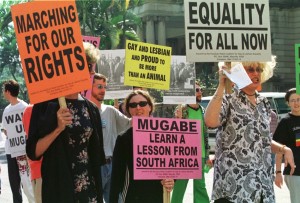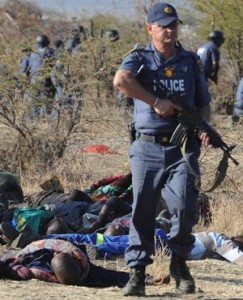By Heba Girgis
Impunity Watch Reporter, Africa
KHARTOUM, Sudan—On Thursday, August 30, Sudan withdrew its candidacy on the United Nations Human Rights Council after receiving strong criticism from several human rights and pro-democracy groups around the world. Sudan’s representatives to the United Nations wrote a letter declaring its withdrawal and noted that, “it is no longer interested in taking up one of the vacancies available in the Human Rights Council.”

The current coordinator for East African countries at the United Nations, Djibouti, first received Sudan’s letter which gave no reason for the country’s decision to pull out of the election that will take place in November at the United Nations General Assembly.
The criticism from human rights groups and pro-democracy groups developed from human rights violations that took place in Sudan. Sudan’s president, Omar al-Bashir, has been accused of genocide and other war crimes in Darfur, and his regime has been accused of other human rights violations in other parts of the country. Ileana Ros-Lehtinen, a U.S. congresswoman who heads the U.S. House Foreign Affairs Committee, noted that “As Sudan appears poised to win a seat on the United Nations Human Rights Council, the United Nations has hit a new low. Allowing this genocidal dictatorship, which has killed thousands of its citizens, to serve on such a body is beyond hypocrisy, it is callous, dangerous and tragic.”
Despite these accusations, Sudan was almost guaranteed a seat on the United Nations Human Rights Council. The Council itself is made up of forty-seven members and Sudan would have been one of the five African candidates for the only five African seats available.
While Sudan gave no indication as to why the country has withdrawn its candidacy, Philippe Bolopion, the United Nations director for Human Rights Watch, was happy with Sudan’s decision and noted that, “the worst human rights offenders are slowly recognizing they are not welcome on the Human Rights Council.” He further commented saying, “Sudan joins notorious rights violators Syria, Iran, Belarus, Sri Lanka and Azerbaijan whose hypocritical aspirations to sit on the Council have properly let to embarrassing retreat.”
Eight years ago, in May 2004, the United States representative at the United Nations Human Rights Commission left the room after Sudan was elected to sit on the Commission at the peak of the Darfur conflict. Despite the growing animosity toward Sudan, one African ambassador noted that no African country wants to jeopardize their own relations with Sudan by telling them that they don’t qualify because of their own human rights problems. The Ambassador further added, “we will be sitting at the table with them in the future.”
The famous actress Mia Farrow has been a leading campaigner for victims in Darfur. Farrow has also been campaigning against the Sudanese government and sought to have the country’s United Nations candidacy disqualified because of al-Bashir’s crimes. The Sudanese government has refused to arrest the president and the African group will now have to choose a replacement for Sudan in order to fill the fifth seat on the Council.
For further information, please see:
The Journal – Sudan Withdraws Candidacy for UN Rights Council – 1 September 2012
Zee News – Sudan Withdraws Candidacy for UN Rights Council – 1 September 2012
Boston News – Sudan Withdraws Candidacy for UN Rights Council – 31 August 2012
Sudan Tribune – Sudan Quietly Withdraws Controversial UNHRC Candidacy – 31 August 2012



